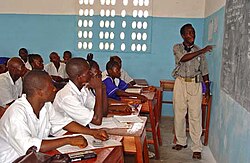| online and campus degrees |
|
| Degrees By Type |
|
| Degrees By Level |
|
| Degrees By Subject |
Degrees By Subject
style="display:none;visibility:hidden;"
technology degrees | nursing degrees | graphics design degrees | education degrees | business degrees | culinary degrees
Technology Colleges & CertificationsDatabase Design Training Electrical Engineering Information Technology Courses LAN Certification Programs Mechanical Engineering Online CAD Programs Online Technology Degree Software Development Training Telecommunications Schools Online Schools Online Business Courses Online Management Courses Finance Degrees Online Online Accounting Degree Internet Marketing Course MBA Programs Online Online Project Management Course Online Technology Degree Online Paralegal Courses Education Degree Online Teacher Certification Online Online Design Schools Online Web Design Courses Online Graphic Design Training Nursing Courses Online Online Health Care Degrees Art Programs Animation Colleges Design Programs Fashion Design Courses Fashion Marketing Fashion Merchandising Courses Graphic Arts Training Graphic Design Classes Illustration Schools Industrial Design Schools Interior Decorating Classes Interior Design Classes Multimedia Programs Online Design Schools Online Graphic Design Training Online Web Design Courses Visual Communications Web Design Schools |
|
|||||||||||||||||||||||||||||||||||||||||||||||||||||||||

A teacher in a classroom at a secondary school in Pendembu, Sierra Leone. |
|
| Occupation | |
|---|---|
| Names | Teacher, schoolteacher |
Occupation type |
Profession |
Activity sectors |
Education |
| Description | |
| Competencies | Pedagogy, subject knowledge; competence in teaching the subject, in curriculum, in learner assessment; psychology; planning; leadership. |
Education required |
(varies by country) Teaching certification |
Fields of employment |
Schools |
Related jobs |
Professor, academic, lecturer, tutor |
Informally the role of teacher may be taken on by anyone (e.g. when showing a colleague how to perform a specific task). In some countries, teaching young people of school age may be carried out in an informal setting, such as within the family (homeschooling), rather than in a formal setting such as a school or college. Some other professions may involve a significant amount of teaching (e.g. youth worker, pastor).
In most countries, formal teaching of students is usually carried out by paid professional teachers. This article focuses on those who are employed, as their main role, to teach others in a formal education context, such as at a school or other place of initial formal education or training.
Education is the process of facilitating learning, or the acquisition of knowledge, skills, values, beliefs, and habits. Educational methods include storytelling, discussion, teaching, training, and directed research. Education frequently takes place under the guidance of educators and also learners may also educate themselves. Education can take place in formal or informal settings and any experience that has a formative effect on the way one thinks, feels, or acts may be considered educational. The methodology of teaching is called pedagogy.
Formal education is commonly divided formally into such stages as preschool or kindergarten, primary school, secondary school and then college, university, or apprenticeship.
In most contemporary educational systems of the world, secondary education comprises the formal education that occurs during adolescence. It is characterized by transition from the typically compulsory, comprehensive primary education for minors, to the optional, selective tertiary, "postsecondary", or "higher" education (e.g. university, vocational school) for adults. Depending on the system, schools for this period, or a part of it, may be called secondary or high schools, gymnasiums, lyceums, middle schools, colleges, or vocational schools. The exact meaning of any of these terms varies from one system to another. The exact boundary between primary and secondary education also varies from country to country and even within them but is generally around the seventh to the tenth year of schooling.
Secondary education occurs mainly during the teenage years. In the United States, Canada, and Australia, primary and secondary education together are sometimes referred to as K-12 education, and in New Zealand Year 1–13 is used. The purpose of secondary education can be to give common knowledge, to prepare for higher education, or to train directly in a profession.
Secondary education in the United States did not emerge until 1910, with the rise of large corporations and advancing technology in factories, which required skilled workers. In order to meet this new job demand, high schools were created, with a curriculum focused on practical job skills that would better prepare students for white collar or skilled blue collar work. This proved beneficial for both employers and employees, since the improved human capital lowered costs for the employer, while skilled employees received higher wages.
Secondary education has a longer history in Europe, where grammar schools or academies date from as early as the 16th century, in the form of public schools, fee-paying schools, or charitable educational foundations, which themselves date even further back.
Community colleges offer another option at this transitional stage of education. They provide nonresidential junior college courses to people living in a particular area.
Higher education, also called tertiary, third stage, or postsecondary education, is the non-compulsory educational level that follows the completion of a school such as a high school or secondary school. Tertiary education is normally taken to include undergraduate and postgraduate education, as well as vocational education and training. Colleges and universities mainly provide tertiary education. Collectively, these are sometimes known as tertiary institutions. Individuals who complete tertiary education generally receive certificates, diplomas, or academic degrees.
Higher education typically involves work towards a degree-level or foundation degree qualification. In most developed countries, a high proportion of the population (up to 50%) now enter higher education at some time in their lives. Higher education is therefore very important to national economies, both as a significant industry in its own right and as a source of trained and educated personnel for the rest of the economy.
University education includes teaching, research, and social services activities, and it includes both the undergraduate level (sometimes referred to as tertiary education) and the graduate (or postgraduate) level (sometimes referred to as graduate school). Some universities are composed of several colleges.
One type of university education is a liberal arts education, which can be defined as a "college or university curriculum aimed at imparting broad general knowledge and developing general intellectual capacities, in contrast to a professional, vocational, or technical curriculum."
An online degree is an academic degree (usually a college degree, but sometimes the term includes high school diplomas and non-degree certificate programs) that can be earned primarily or entirely through the use of an Internet-connected computer, rather than attending college in a traditional campus setting. Improvements in technology, the increasing use of the Internet worldwide, and the need for people to have flexible school schedules while they are working have led to a proliferation of online colleges that award associate, bachelor's, master's, and doctoral degrees.
The goal of educational accreditation, according to the United States Department of Education, is to ensure that programs provided by institutions of higher education meet acceptable levels of quality.[1] ENQA, the European Association for Quality Assurance in Higher Education, describes the role of external quality assurance in education as one that "combines both accountability for the reassurance of the public and an objective and developmental role for enhancing quality in institutions".[2] In the area of online education, it is important to avoid unaccredited diploma mills that offer fake degrees, as these are unfortunately common. Students seeking valid online degrees should obtain proof of accreditation from an appropriate national or regional accrediting body.
In the United States, online colleges that are fully accredited have earned a widely recognized form of university accreditation from one of six regional accreditation boards.[3] Each of six geographic regions of the United States has one of these boards, a non-governmental agency that oversees and accredits degree-granting institutions headquartered in their areas. The U.S. Department of Education and the Council for Higher Education Accreditation (CHEA) also recognize the Distance Education Accrediting Commission (DEAC) as the accrediting organization for distance learning institutions and education programs that offer online degrees.
Outside of the United States, other national and regional standards of accreditation hold, and may be highly supportive of, distance education. For example, the Universitat Oberta de Catalunya, or Open University of Catalonia, has been accredited by AQU, the Agency for Quality Assurance in the Catalan University System (a full member of ENQA), since its inception in 1995, and has been called a "significant success story" as "the world's first continuous, and sustainable, virtual university".[4] Similarly, in Ireland, the Higher Education and Training Awards Council (HETAC) has accredited a number of online colleges and degrees, e.g. Setanta College.[5]
In many cases, an online degree earned through an accredited public or private university may be effectively indistinguishable from a degree earned in a campus-based program, sometimes referred to as "brick-and-mortar" programs. The instruction is often exactly the same, with the online degree containing no special designation. As such the same financial aid packages are often available to online students, which has helped make them more accessible to traditional applicants. An example of an indistinguishable degree program is that offered by Columbia University. Student who earn a degree through the Columbia Video Network (CVN) earn exactly the same type of degree as the campus-based program.[13] The professors, courses, homework, tests, and eventual transcripts and diploma are identical to that of on-campus students.[14] Another example is NYU Tandon Online which offers master's degrees completely online through New York University Tandon School of Engineering.[15]
In recent years many top universities have been actively expanding their extension and online learning programs in an effort to legitimize the online education arena.[16][17] While admissions to online programs at prestigious universities hasn't seen a dramatic spike, there has been a large expansion in course offerings in recent years. Almost all Ivy League and top 20 universities now offer at least one online graduate degree program or certification.[18]
The Sloan Consortium, based on data collected from over 2,200 U.S. colleges and universities, reports that nearly 3.2 million students took at least one online course during 2005 (a significant increase over the 2.3 million reported in 2004). According to the same report, about two-thirds of the largest institutions have fully online programs.[11] In 2010, more than 6 million students were taking at least one course online.[20] As of 2013, the number of students enrolled in online courses had risen to over 6.7 million.[21]
- "U.S. Department of Education Database of Accredited Postsecondary Institutions and Programs". ed.gov. United States Department of Education. Retrieved 2011-07-05.
- "ENQA Mission Statement". enqa.eu. European Association for Quality Assurance in Higher Education. Retrieved 2011-07-05.
- "College Accreditation in the United States-- Pg 7". ed.gov. United States Department of Education. Retrieved 2011-07-05.
- Rajasingham, Lalita. "New Challenges Facing Universities in the Internet-Driven Global Environment". EURODL. European Distance and E-learning Network. Retrieved 2011-07-05.
- "Setantal Report Final with Amendments" (PDF). Archived from the original (PDF) on 2013-11-12.
- Adams, Jonathan; Defleur, Margaret. "The acceptability of online degrees earned as a credential for obtaining employment". Communication Education. Routledge. doi:10.1080/03634520500343376.
- Wellen, Alex (2006-07-30). "Degrees of Acceptance". The New York Times. Retrieved 2011-07-05.
- "Fraud and Online Learning". 5 October 2011 – via NYTimes.com.
- Robinson, JoAnn (2004-03-23). "Using Your Distance Education to Earn an Academic Degree" (PDF). detc.org. Distance Education and Training Council. Archived from the original (PDF) on 2008-07-06. Retrieved 2011-07-05.
- Carnevale, Dan (2007-01-05). "Employers Often Distrust Online Degrees". Chronicle of Higher Education. Retrieved 2011-07-05.
- Allen, I. Elaine; Seaman, Jeff (2006-11-15). Making the Grade: Online Education in the United States, 2006 (PDF). Sloan Consortium. Retrieved 2011-07-05.
- Lohr, Steve. “Second Thoughts On Web Classes.” New York Times 13 Sept. 2010: 3 Academic Search Complete. Web. 12 Apr. 2015.
- Schweitzer, Karen. "Will Anyone Hire a Grad with an Online Business Degree?". about.com. Retrieved 2011-07-05.
- Online Degrees Portal Is online degree the same as on-campus degree?
- NYU-ePoly FAQs What is the difference between an on-campus course and online course content?
- charley (8 April 2015). "About Us".
- Tabs, E.D. (2003-07-15). "Distance Education at Degree-Granting Postsecondary Institutions: 2000-2001" (PDF). National Center for Education Statistics. Retrieved 2011-07-05.
- "Growing number of college students choose online courses". Pittsburgh Post-Gazette. 2012-02-16. Retrieved 23 December 2012.
- "The Rise of Online MBA Education". University of Ohio. Retrieved 23 February 2015.
- Croix, Wendy. "Down with the 50 Percent Rule: Up with Online Education Financial Aid". WorldWideLearn. Retrieved 2011-07-05.
Code
| More Info |
|||||
MA/Ed. |
Master of Education |
|||||
|
||||||
| :: Concentration: Education, Developmental | :: Campus |
:: Location: Seattle, WA |
:: more info |
Code
| More Info |
|||||
MA/Ed. |
Master of Education- Curriculum and Technology |
|||||
|
||||||
| :: Concentration: Education, Developmental | :: Online |
:: Location: Online |
:: more info |
Industry Description
Online education is the ideal way to gain your teacher certification if your lifestyle will not allow you to go to college full-time. Whether work or family commitments, or other constraints on your time, prevent you from attending a classroom-based program, you can still gain the qualification you need to begin a career in teaching. Alternatively, if you just want the flexibility to learn when and where you want, gaining your teacher certification online is the perfect way for you to develop your career prospects.
The level of education in the educational services industry is higher than average, especially among teachers. As a teacher at kindergarten, elementary, middle, or secondary school you will need the relevant qualification before employers will consider hiring you. Once you gain that all-important first position, online learning will allow you to develop your resume and remain competitive within the teaching profession.
At kindergarten and elementary level you will be required to teach all subjects and the emphasis of your training will be on basic skills and teaching techniques. To teach at middle and secondary school you will have to specialize in a particular subject so your training will focus on skills in that area as well as on generic teaching methods. You might choose to specialize in working with students with special needs and for that your training will be different again. It is important that you choose the program that is right for the area of teaching you want to pursue. Almost all areas of teacher certification are available online.
Degrees By Subject
![]()
Computer Colleges
CAD Schools
Computer Animation Universities
Computer Networking Courses
Computer Programming Colleges
Computer Science Degrees
Electronics Courses
Internet Computer Classes
Online CAD Programs
Online Computer Certification
Online Computer Science Degree
Online Programming Classes
Programming Degrees
Healthcare Training
Dental Assisting Schools
Dental Colleges
Dental Hygenist Program
HIPAA Schools
Massage Therapy Classes
Medical Administration
Medical Assistant Training
Medical Billing And Coding Courses
Nursing Classes
Nursing Courses Online
Online Health Care Degrees
Phlebotomist Certification
Physical Therapy Colleges
Ultrasound Schools
Ultrasound Technician Training
Culinary & Hospitality Training
Baking School
Cooking Courses
Culinary Arts Programs
Hotel Management Schools
Pastry Class
Restaurant Management Schools
Travel Colleges
Legal Training
Criminal Justice Degree Online
Criminal Justice Courses
Legal Assistant Training
Online Paralegal Courses
Paralegal Courses
Teacher Colleges
Education Colleges
Education Degree Online
Teacher Certification Online
Teacher Training Schools
Film & Journalism Schools
Broadcasting Training
Film Degree
Journalism Courses
Movie Schools
Photography Courses
Video Production Courses
Criminal Justice
Criminal Justice Degree Online
Criminal Justice Courses
Legal Assistant Training
Paralegal Courses
Online Paralegal Courses
Site Map
"Teacher certification" Sponsors
debt help | get out of debt | general links | web site design
Educational Resources
Technical and Non-Technical Degrees | The Chubb Institute and Banner Institute | DeVry University | University of Phoenix |College Searching
College Searching and Online Degrees offer Associate, Bachelor, Masters and Ph.D. degrees in automotive, teaching, finance, internet technology, accounting, marketing, Teacher certification, nursing, computer science, fashion and graphic design, and much more!
©1998-2026 College Search, Inc. |
™Online & Campus Degrees Directory |




